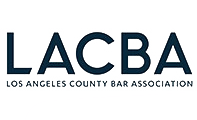Sexual harassment isn’t the only issue that can create a hostile work environment. At the same time, not all work environments that are “hostile” will justify legal action. Are you entitled to financial compensation or other remedies? Here’s what you need to know.
What does it mean to work in a hostile work environment? The answer isn’t what many people think. While some work environments are indeed “hostile” – with unreasonable deadlines, bosses who are mean, and high levels of stress all day long – these types of unfortunate circumstances do not always rise to the level of legally-actionable employer misconduct.
To be considered unlawful under California law, a hostile work environment must be the product of inappropriate and unwelcome behavior that is based on a protected characteristic and is so severe or pervasive that it alters the conditions of employment and creates an abusive atmosphere. In other words, your boss can be mean and a bully without crossing the line into unlawful harassment. A hostile work environment resulting from unwelcome behavior based on a protected characteristic, however, can potentially justify legal action against your employer.
If you suspect you are working in an unlawful hostile work environment, contact us online or at (213) 863-4276 to schedule a free and confidential consultation. Our hostile work environment lawyer handles all workplace harassment cases on a contingency basis. That means you pay us nothing unless and until we obtain a settlement or verdict for you
If you are in need of a Hostile Work Environment Lawyer, contact Custis Law, P.C. today for a free consultation.
Or Online
Send Keith a MessageRecognizing an Unlawful Hostile Work Environment
In California, the primary statute protecting employees against unlawful hostile work environments is the Fair Employment and Housing Act (FEHA). The FEHA defines “harassment” as:
- verbal harassment at work, such as epithets, derogatory comments or slurs (or repeated romantic overtures, sexual comments and jokes or prying into one’s personal affairs); or
- physical harassment at work, such as unwanted touching, rubbing against someone, assault and physical interference with movement or work; or
- visual harassment at work, such as derogatory cartoons, drawings or posters, lewd gestures or leering.
Under FEHA, workplace harassment creates an unlawful hostile work environment when it:
- Is unwelcome;
- Targets an employee’s protected characteristic (or multiple employees’ protected characteristics);
- Is either so severe or pervasive that it alters the conditions of employment and creates an abusive atmosphere; and
- Your employer knew or should have known the harassment was happening.
While they are certainly not acceptable, discrete incidents that do not have a significant impact on your physical safety or psychological state will generally be insufficient to support a claim for a hostile work environment. Specifically, the Supreme Court of California has stated that inappropriate or unwelcome behavior will not support a claim for harassment if it is: (i) isolated, (ii) occasional, (iii) sporadic, or (iv) trivial.
But when does inappropriate or unwelcome behavior cross the line? When does repeated harassment transition from “occasional” to “pervasive”? Who decides if a verbal confrontation is “trivial” or “severe”?
These are not easy questions to answer. Assessing a potential claim for hostile work environment harassment requires a fact-intensive assessment of the particular circumstances involved. In some cases, the inappropriate conduct will be so severe that proving a pattern of behavior or culture of hostility will not be necessary. In others, inappropriate acts that would not be actionable standing alone will add up to create an abusive and untenable work environment. Some of the factors that may be relevant to assessing a potentially hostile work environment claim include:
- The nature of the abusive conduct (i.e. whether it is targeting your job performance or directly or indirectly targeting a personal characteristics);
- Whether the individual (or individuals) involved are your coworkers or superiors;
- Whether the conduct involves multiple coworkers or a single employee;
- Whether a particular act or pattern of behavior is being repeated;
- Whether you notified your superior that the conduct is making you feel unsafe, uncomfortable, or abused; and
- Whether the inappropriate conduct involves physical contact, verbal abuse, or written (i.e. texted or emailed) communication.
Critically, not all of these factors will be relevant in all cases. Other considerations may be relevant as well. For example, while being subjected to harassment by multiple coworkers could increase the level of hostility, it is absolutely possible to file a claim based on the acts of a single employee – particularly (but not exclusively) when that employee is one of your superiors.
If you have been mistreated or harassed at work based on one of your personal characteristics, contact a Los Angeles harassment lawyer online or at (213) 863-4276 to schedule a free, confidential consultation.
What You Can Do Now About A Hostile Work Environment
If you believe you may have a claim for a hostile work environment, you can take a number of steps to protect yourself and preserve your legal rights against employee harassment.
1
Tell the Harasser to Stop.
If you feel safe doing so, tell the harasser that you find the harassment offensive and ask for it to stop. Although many harassers know well that they are being offensive, not all do. Unwelcome harassment can sometimes be resolved simply by asking that it end.
2
Journal.
Keep a journal of the hostile acts you’ve experienced, including dates, places, times, names of the persons involved and names of witnesses. Keep this journal at home or in a safe place, and not at work.
3
Report It in Writing.
Many employers have hostile work environment policies in their employee handbook. If your employer does, follow the procedure in the handbook for reporting a hostile work environment. If your employer does not, make a written report to your supervisor or someone in human resources. This report does not need to be long or formal. An email to a supervisor will work fine.
4
Keep Records.
Keep copies of emails or other documents that you have sent or received from your employer regarding your complaint. Keep copies of emails or other documents that you have received that you suspect are discriminatory or harassing. If your employer has an employee handbook, obtain a copy. Also, keep copies of positive performance reviews and letters. Keep all of these records at home or in a safe place, and not at work.
5
Don’t Quit.
No one wants to experience a hostile environment at work. We understand that. But employees who quit before reporting a hostile work environment will have a more difficult time winning a lawsuit. If you’re experiencing a stressful workplace, talk to an experienced employment attorney about how to preserve your legal claims.
6
Take Care of Yourself.
Seek professional counseling or treatment if you are experiencing emotional distress, anxiety, depression or other psychological symptoms because of the hostile work environment.
7
Contact an Employment Attorney.
Contact an attorney experienced in California employment law at Custis Law, P.C. online or at (213) 863-4276 to schedule a free, confidential consultation.
What Our Clients are Saying
"I really needed a sounding board and some help navigating these waters, and you treated me right. You did not fail to deliver!"
Custis Law, P.C. Client
More TestimonialsLet a Los Angeles Hostile Work Environment Attorney Fight for You
If you would like to speak with a hostile work environment lawyer about filing a claim for a hostile work environment, please contact us online or at (213) 863-4276 to schedule a free, confidential consultation.
Our employment lawyer in Los Angeles handles all workplace harassment cases on a contingency basis. That means you pay us nothing unless and until we obtain a settlement or verdict for you.
Contact Custis Law, P.C.
If you would like to schedule a free, no-risk consultation with Custis Law, P.C., call (213) 863-4276 or submit a request through our online form. If we cannot answer you inquiry immediately, we will be in touch within 24 hours.









